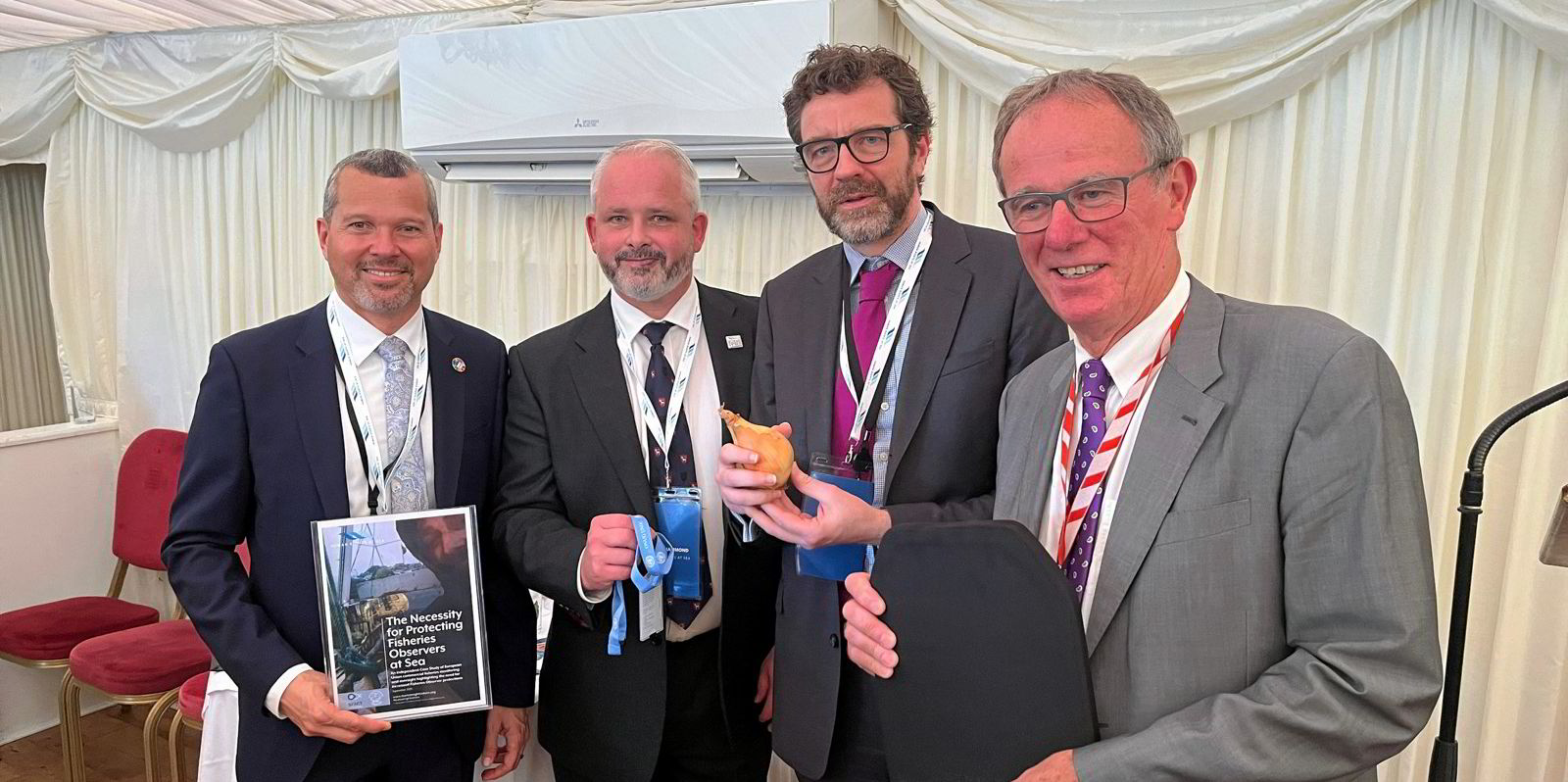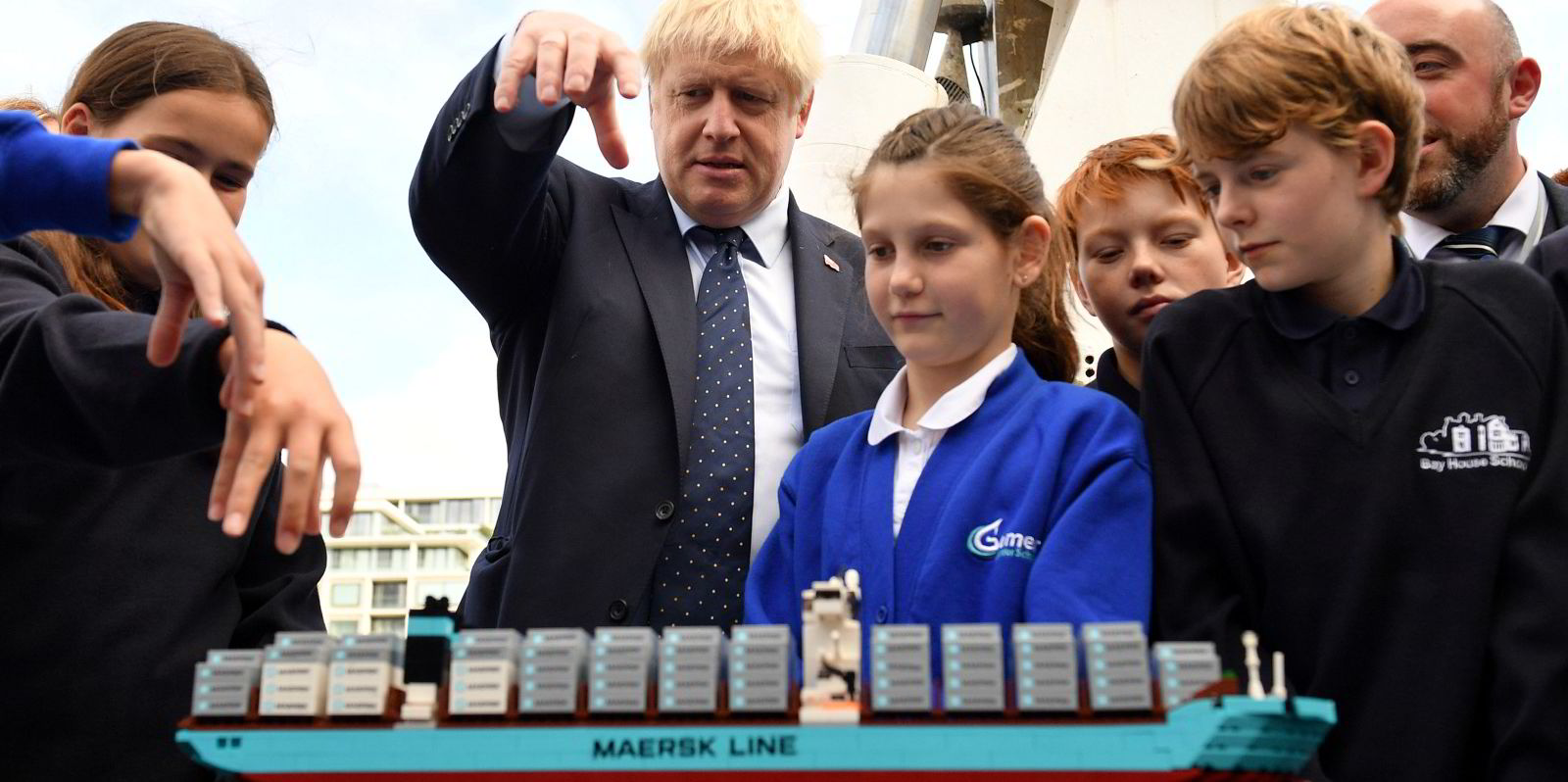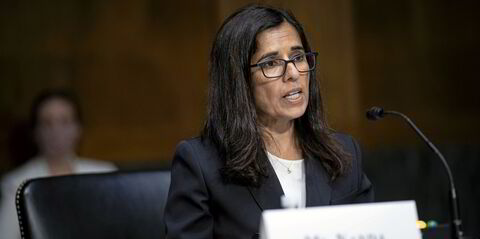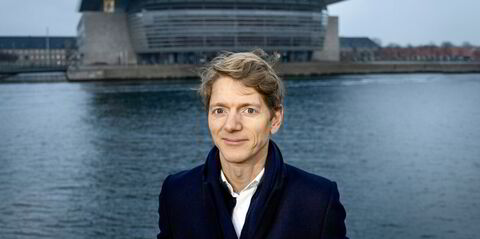A unique organisation that addresses human rights abuses at sea has made an appeal for more collaboration and funds to enable greater impact of its work.
Human Rights at Sea, the NGO set up by British lawyer David Hammond, this week celebrates the 10th anniversary of its launch on the vessel HQS Wellington on the Thames in central London during the first London International Shipping Week.
A decade on, both have matured and grown in influence.
Yet there remain at least 380 vessels currently abandoned worldwide leaving their crews potentially destitute, according to Hammond’s analysis of figures from the International Labour Organization.
“Human rights are universal,” Hammond told guests at a reception in the UK’s House of Lords last week to mark the occasion. “The sea should not be a lawless place where human rights abusers and complicit maritime entities should get away with it with impunity.”
Human Rights at Sea raises awareness of abuses at sea, helps victims of abuse and their families access justice and advocates for more effective laws and policies to protect people at sea.
Matthew Vickers, chair of the charity’s trustees, thanked supporters who attended the event that included the next secretary general of the International Maritime Organization, Arsenio Dominguez, but added: “It is still a request for more help!”
He said it was not just about resources and funds. “It might be about relationships, it might be about connections or influence, it might just be about thinking time that might move this forward.
“Human rights is a cause that deserves a greater share of mind, a greater share of voice and a greater share of heart. And hopefully that’s what we’ll achieve.”
Hammond, who qualified as a barrister after a military career, spoke to guests with three props. “What does a UN access badge, a piece of ceramic body armour and an onion have to do with our organisation? If that doesn’t grab you, I owe my wife a meal!” he said to laughter.
The eclectic collection was emblematic of the impact, fieldwork and human need for the organisation’s work.
Last year, Human Rights at Sea was awarded special consultative status with the United Nations’ economic and social council that gives standing to work at state level, and with UN agencies.
“We are able to better address the issue of abuses at sea,” Hammond said.
The body armour reflected its work in conflict zones, in particular Ukraine, where the organisation was among the first on the ground collecting war crimes evidence, and evidence of human rights abuses in the coastal communities.
Meanwhile, the onion was a personal reminder of the generosity of a near-destitute Indian family he visited and who had been exploited.
“We met a family and despite the impoverished conditions they gave us everything they had,” he recalled. “They were subject to debt bondage. All the father had left to sell was his harvest of onions. Why that sticks in my mind today is that harvest was all that stood between them and destitution.”
He added: “The irony was that the seafarer was a member of a multitrillion-dollar supply chain, and when we asked for financial support for the family we were told there was none. That is plain wrong!”
The House of Lords event was hosted by the group’s patron Lord Teverson, an economist and former Liberal Democrat MEP, who is a member of parliament’s influential International Relations and Defence Committee.
The organisation’s work is focused on three main areas, Vickers said. The Geneva Declaration on human rights at sea; how to make states and entities take those responsibilities seriously; and the broader question of the rule of law.
Human Rights at Sea is working through the UN and different states to see how the declaration, which informs people about their rights and responsibilities, can get official recognition.
The organisation has published 90 documents detailing human rights abuses, and effected legislative change in 50 countries over the last decade, Hammond said.
Working with others in New Zealand, the 1994 Maritime Transport Act was changed which will improve onshore welfare facilities in 10 ports for 130,000 seafarers from next year, he claimed.
“To our friends in the IMO, just think what we can achieve for a small change in legislation if we can replicate that within the wider 175 members of IMO.
Read more
- Comment: Shipping’s place in post-Brexit ‘Global Britain’ is under strain
- Talent pool and connection to global shipping hub fuels UK tech
- London retains status as global insurance capital despite declining market share
- London shipping: Are the Baltic Exchange and FFA market experiencing the ‘seven-year itch’?
- London law firm Stann makes waves after setting free the Ever Given




